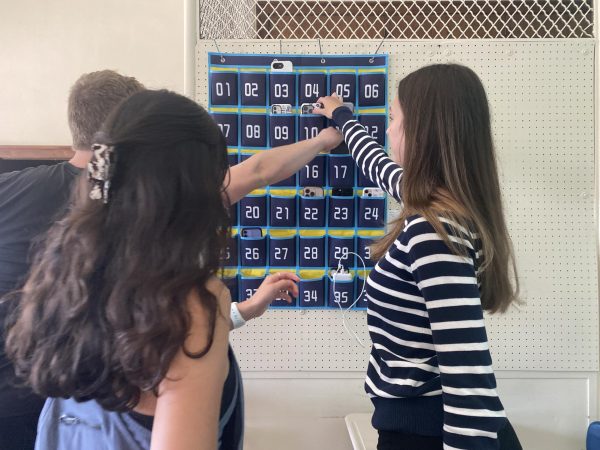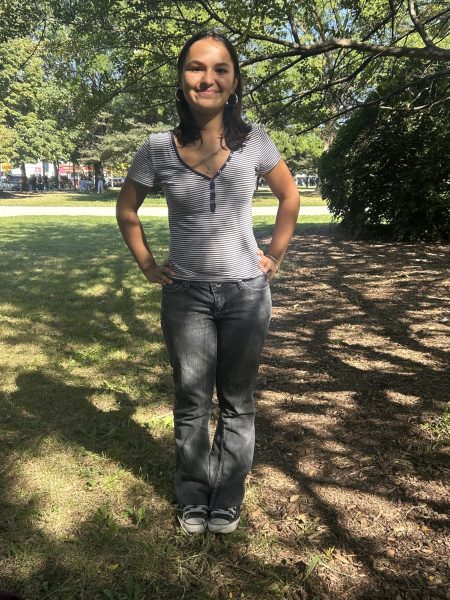The real impact of ‘demonstrated interest’ in college admissions
With the college application process soon coming to a close, many seniors are eagerly and anxiously waiting for the release of their admissions decisions. Students are submitting their transcripts, extracurriculars, countless essays, and possibly standardized test scores with the hopes of being accepted into their dream schools. However, outside of a student’s profile, college admissions may also take into account “demonstrated interest.”
But what does demonstrated interest mean? Lane’s College and Career Coach, Erin Driesbach, described what demonstrated interest is and how important it is to colleges.
“Demonstrated interest is the tracking of how much a student seems interested in a college,” Driesbach said. “And it can be really important to some colleges, and less important or not even tracked at all for other colleges. You can see if a school tracks demonstrated interest and how important it is on their common data set.”
A school’s common data set can be found on that individual college’s website.
For schools such as Tulane, Northwestern, Syracuse and American University, showing interest is a significant criterion for admission, while for other schools such as the University of Georgia, Drake University and Princeton it’s not.
In addition to the variation between colleges’ evaluation of demonstrated interest, among the schools who do take it into consideration, there is also inconsistency.
Driesbach said that depending on the school, demonstrated interest may be measured differently.
“I think every college tracks demonstrated interest differently and so some colleges will say once you’ve done one thing you check a box and others are probably being much more strategic,” Driesbach said.
While not all colleges weigh demonstrated interest as an admission factor, for the schools that do use it, a student’s level of demonstrated interest could make or break their application.
Rosanna Console, one of Lane’s counselors, said that colleges use demonstrated interest to evaluate students in order to narrow down their application pool.
“So why colleges have this or are tracking this data is because they are trying to determine their yield impact. They’re trying to build their class. It’s harder to determine which student is actually going to enroll, so their rationale is the students that show more interest in the school are more likely to enroll in that college campus,” Console said.
Senior Ava Steiner, who is also a Writing Center tutor, discussed the importance of students setting themselves apart from the application pool by being specific in their college essays.
“I know UW Madison is one of them to ask about interest in the school, and I think the most important bit about that is just doing your research. So you have to name programs and stuff to do that,” Steiner said. “You can’t just be very generic.”
Console said there are a variety of methods students can use to show demonstrated interest in the schools they are applying to.
“You can show demonstrated interest in many different ways. It can be directly or indirectly. Directly is obviously visit[ing] the campus. Indirectly is whenever those colleges send you those lovely emails, click on it because it’s always tracked. When the college reps come [to] visit Lane, attending and communicating with those admissions reps that show demonstrated interest again, it’s always constantly tracked,” Console said.
With the COVID-19 pandemic, many colleges are now offering virtual tours for students who are unable to visit the campus in person.
According to Driesbach, with schools going test-optional, there has been an influx of applications, in turn decreasing the value of demonstrated interest for some colleges.
“Whether or not you’ve visited in person probably matters less. I think some of the more selective colleges are caring about demonstrating interest less and partly because they are getting so many more applications,” Driesbach said.
But the pandemic has also allowed colleges who do consider demonstrated interest to expand virtual opportunities for students to connect with their campus. Especially because students have more remote options to show their interest, colleges are easily able to track email engagement, attended webinars, campus visits and more.
The accessibility and flexibility of these online alternatives also provide an affordable and equitable option for students who may not have the financial means to attend in-person campus visits.
“It’s very challenging for some students because they don’t have the financial means to make it or to visit the college campus, whether they’re flying or driving,” Console said. “Colleges do a great job of still being very equitable in regards to that because, again, they gauge demonstrated interest in many different ways.”
Nonetheless, during the stage of researching colleges, Driesbach recommends that students keep in mind the importance of showing interest throughout the college application process.
“I would encourage students to check the common data sets of schools that they’re interested in to see if they do track demonstrated interest,” Driesbach said.
Your donations directly fund the Lane Tech student journalism program—covering essential costs like website hosting and technology not supported by our school or district. Your generosity empowers our student reporters to investigate, write, and publish impactful stories that matter to our school community.
This website is more than a publishing platform—it's an archive, a research tool, and a source of truth. Every dollar helps us preserve and grow this resource so future students can learn from and build on the work being done today.
Thank you for supporting the next generation of journalists at Lane Tech College Prep!

Nina is a senior and this is her second year writing for The Champion where she covers A&E reviews and features. She is part of the Omega Program,...



